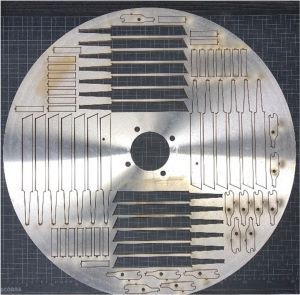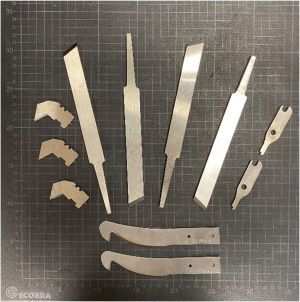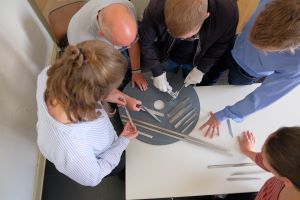The sustainable use of natural resources is currently one of the greatest challenges facing society. According to a Circular Economy (CE), raw materials should be kept in the economic cycle if possible with regard to value retention. The central concern of the CoT project is to close regional material cycles in the metal processing industry through the re-manufacturing and re-purposing of worn metal products. Re-manufacturing is the use of components of a defective product in a new product with the same functionality. Re-purposing is the use of components of a defective product in a new product with a changed function.

Material cycle of the metal industry
In general, the extended concept of the Circular Economy (CE) is seen as an essential strategy to reduce the consumption of raw materials and resources. Recycling is an established strategy in the metal sector. This is preceded by concepts such as re-manufacturing and re-purposing. Like this, materials remain longer in the economic cycle with a higher value. In this way, the cooperating research institutions and companies from the region “Bergisches Land” exemplarily close a material cycle of the local metal processing industry.
The aim is to demonstrate the changed resource and energy consumption as well as economic efficiency of the companies. The challenges are manifold: A process must be developed that is based on the use of purely returned and qualitatively high-alloyed tool steel either in the original manufacturing process or integrated in an industrial symbiosis. The essential progress lies in avoiding remelting as part of the dominant recycling process in the steel industry. Although this is desirable and in the sense of a CE, it goes hand in hand with high energy and resource consumption.

Results (Status June 2022)
At the beginning of the project, the project team determined suitable target products based on material science principles and suitability of geometry. This was followed by essential metallurgical investigations to derive findings for the manufacturing process. Finally, it was possible to manufacture machining knifes (re-manufacturing), cardboard knives and woodturning chisels.
The ecological investigation has shown that the implementation of re-manufacturing and re-purposing has a considerable environmental saving potential. To realize these, the optimization of transport and grinding is crucial. The economic analysis showed that significant cost savings are possible with remanufacturing. Initially, re-purposing was not profitable. Minimizing individual cost blocks by e.g. charging can lead to achieving the target costs. The business model development revealed significant opportunities such as product diversification, knowledge generation and customer loyalty. It also revealed design opportunities such as the revenue model. A major barrier is the German Recycling Management Act as a legal basis, which places disproportionate demands on the process.

Interdisciplinary competence
The CoT project unites a total of six project partners in its inter- and transdisciplinary team. Three metal-processing companies from the region “Bergisches Land” are working closely with two research institutions. Using the products of the companies TKM GmbH, Kirschen Werkzeuge and Freund & CIE, and with the support of PlanConsult GmbH, the project aims to demonstrate how the material can be reused via re-manufacturing and re-purposing. Furthermore, demonstrators are produced by the respective companies through re-manufacturing and re-purposing.
Researchers from the University of Wuppertal and the Wuppertal Institute are responsible for the scientific investigations. The focus is on the metallurgical analyses of the tools and cutting products as well as the ecological and economic potential.
Publications
Final Report Part I (2023)
Final Report Part II (2023)
W. Hagedorn, S. Jäger, L. Wieczorek, P. Kronenberg, K. Greiff, S. Weber, A. Roettger, More than recycling – The potential of the circular economy shown by a case study of the metal working industry, Journal of Cleaner Production 2022, 377,134439. DOI:https://doi.org/10.1016/j.jclepro.2022.134439
Project flyer of the funding measure (German / English) (March 2021)
The project flyers offer an insight into the contents and goals of the ReziProK projects and present first results in each case.
Project sheets of the funding measure (German) (August 2019)
The project sheets provide a brief overview of the individual projects and their goals.
Contributions to the ReziProK Transfer Conference in June 2022
Poster (German) (June 2022)
Presentation (German) (June 2022)
Picture credits: TKM 2019
